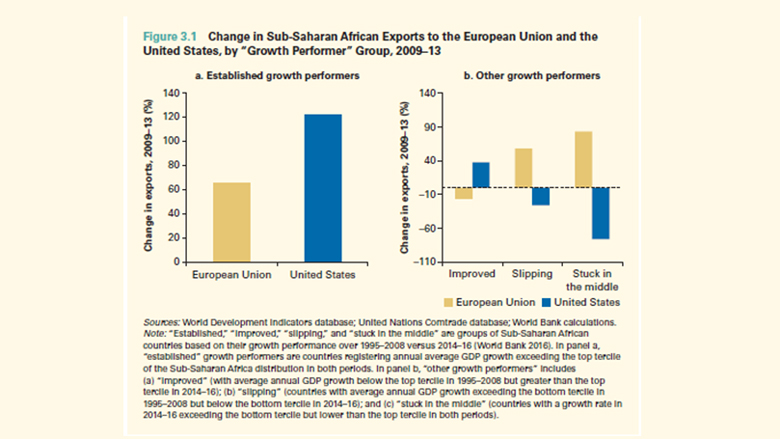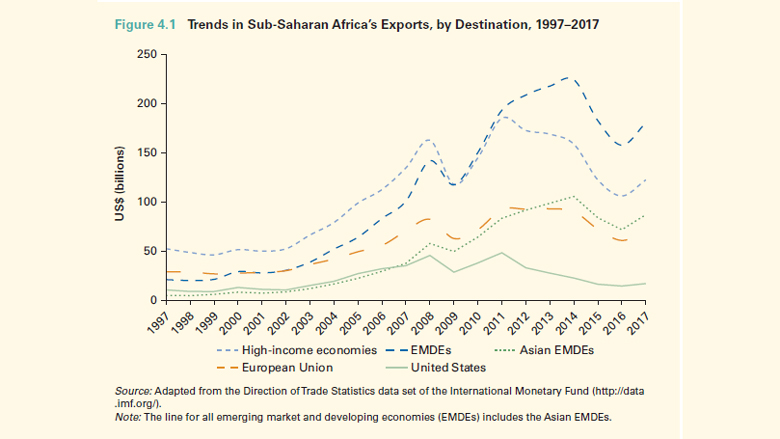

There is a need to integrate unilateral trade preferences with other efforts to deepen trade and investment between African countries and advanced countries, mainly the US and the EU, addressing the structural challenges limiting the region’s export capacity. Additionally, the international community needs to shift from the current tangle of trade agreements that reinforce the economic and political fragmentation that has long choked the region’s prospects for increased integration. Adoption of a more streamlined “contract with African neighborhoods” would facilitate subregional production networks, encourage subregional cooperation initiatives, and help to reduce the risk of cross-border conflicts by increasing the economic linkage of the member countries.

Trends in Sub-Saharan Africa's Exports
Trends in Sub-Saharan Africa's Exports, by Destination, 1997-2017The Tires: Strategically Diversify Trade with Asia
Asia’s growing middle class and its voracious demand present an opportunity for Africa to expand trade with the region. The book’s findings indicate that exports to Asia raised labor productivity, wages, and capital intensity in Africa. Further, trade with Asia does not crowd out African countries’ exports to the rest of the world, nor does it cause specialization in material-intensive export. To deepen trade ties, the region must expand and utilize trade agreements, exploit emerging initiatives to boost Asia-Africa Trade, facilitate export promotion initiatives, assess the growing Asian middle class’s consumption patterns to inform export diversification, and promote “niche” industries geared towards the Asian export market.
The Engine: Deepening Regional Integration within Africa
Sub-Saharan Africa’s success in the global market rests on deepening regional integration to scale up supply capacity and build regional value chains. The establishment of the Africa Continental Free Trade Agreement (AfCFTA) presents opportunities to boost intra-African trade, strengthen the complementarities of production and exports, create employment, and limit the impact of commodity price volatility on the participants. It also provides for increased resilience to global shocks, promotes the exchange of a more diverse set of goods, and contributes to reducing conflicts. Greater regional integration is paramount for AfCFTA to succeed.
The region must improve physical integration - such as cross-border energy and transport infrastructure and connective infrastructure; strengthen political cooperation – such as harmonizing customs rules and procedures; and facilitate business integration – such as regional electronic settlement system, electronic cargo tracking system, and easing restrictions on services trade.